After growing up in a fundamentalist family in an isolated area of the Midwest, Austen O’Hara looked to the military as a means of escape.
“I come from a very strict religious Christian background. I was born in a family of seven children,” says O’Hara, 33. He explains that, as a trans man, the enforcement of rigid gender roles was among the things that made life very difficult in his youth.
“If [music] had anything but piano and organ, like if it had electric guitar or drums, it was considered Satanic or bad,” he says, highlighting the extremism of his parents’ beliefs. “We weren’t allowed to go to movie theaters, we weren’t allowed to watch movies, we didn’t have TV. All the girls in our house had to wear skirts … even to bed, I had to wear skirts.”
Feeling “lost” after failing to become a pastor’s wife to please his father, O’Hara decided to join the Air Force in 2014 to leave that oppressive situation and find his true self.
“I’ve always wanted to join the military — and thank goodness I [did] because, I mean, joining the Air Force was my ticket out of the cult that I grew up in,” he says.
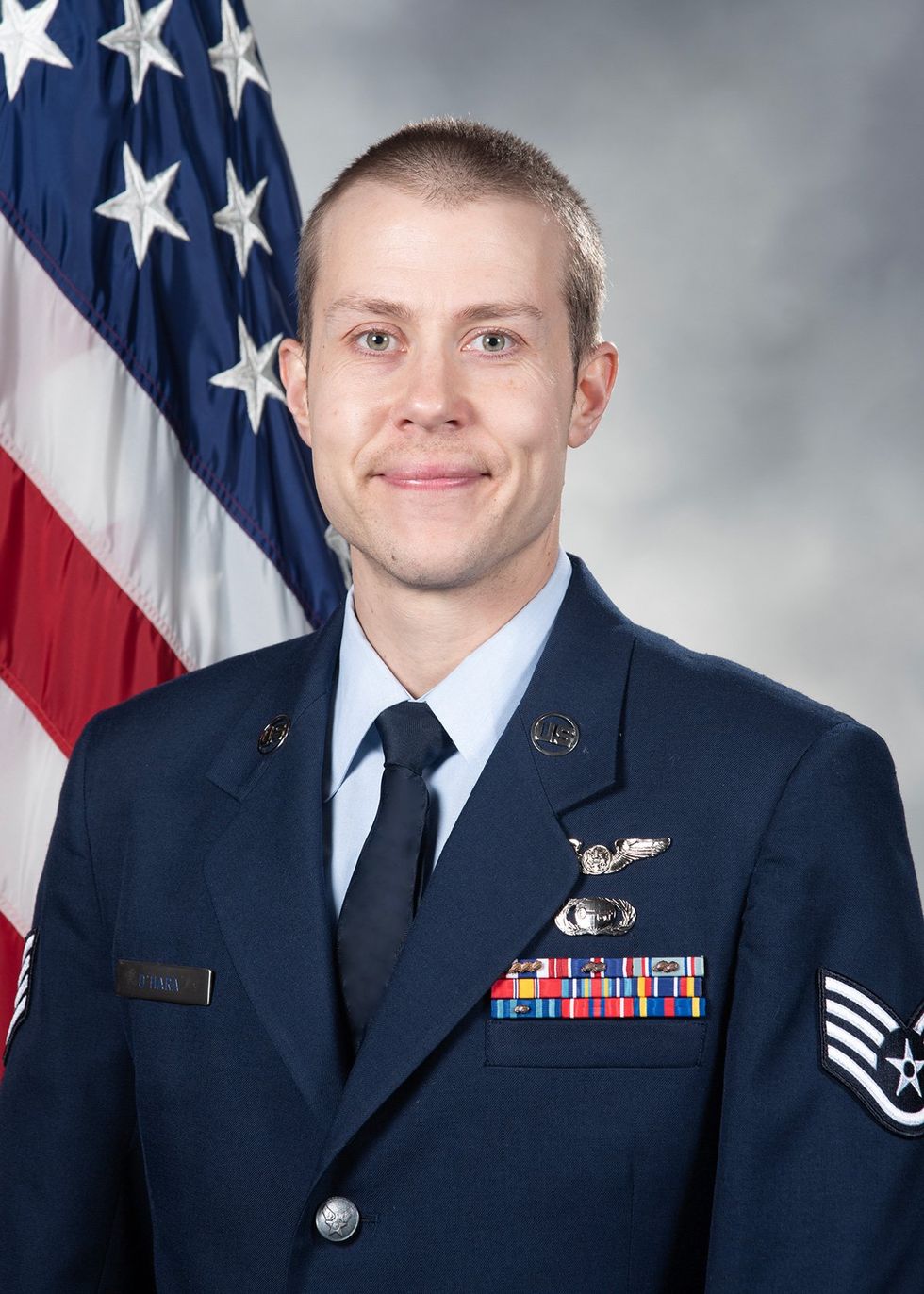
However, O’Hara’s time in the military was also when he realized he was transgender.
“I graduated in 2016, and then I was stationed in Omaha, Nebraska. I still was serving as a female at that time,” he explains. “It wasn’t until 2018 where I kind of started to discover myself.”
After some soul searching and the eventual embracing of his trans identity, O’Hara says he was ready to start the transition process. Unfortunately, this was right around the same time that Donald Trump had first declared his plans to ban transgender people from serving.
Feeling “panicked” at the idea of not being able to start his transition, or possibly have to wait another six years until his contract was up, O’Hara decided to push forward. With a $10,000 bonus check in his pocket from his service as a Chinese linguist in the Air Force, he found a top surgery specialist in the area and booked the procedure. In addition to having to fund the surgery himself, he couldn’t take off the proper amount of time to recover.
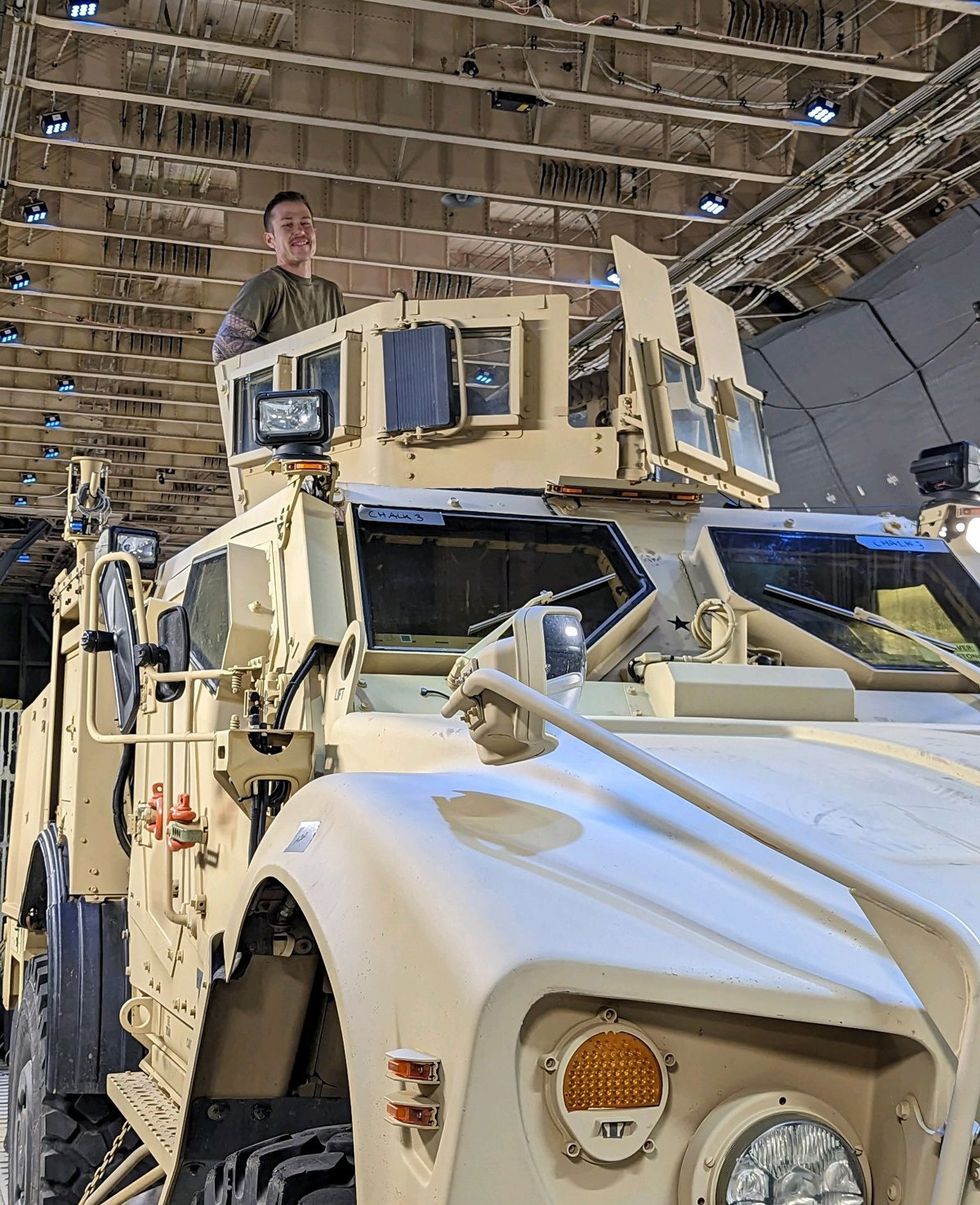
“I took two weeks of my own leave and just got the surgery in secret,” O’Hara says. “And I came back to work and I was like, ‘What are you gonna do?’ Like, you can’t put them back on me, right?”
To O’Hara’s surprise, after returning, he discovered that going ahead with the surgery also created a loophole in which he could continue to serve — and do so openly as a trans man.
“In order to get your gender marker changed in the military at that time, you had to have a surgery,” he explains. “And they were like, ‘Well, since you’ve already had your surgery, congrats, and you can change your gender marker.’ So my gender marker was changed, no joke.”
He also notes that he found good people in the military who fought for him and helped him on his journey. He says focusing on the things he could control in terms of his gender identity while serving is what got him through it.
There’s more to O’Hara’s story, but he continued to serve until his military contract ended last year and is now completing his medical transition. And while things are going well for him these days, of course, he says he worries for trans people currently serving, now that Trump is back in office and again trying to push them out of the military.
“I’m very proud of my service in the military, but I think I got out at the right time,” he says.
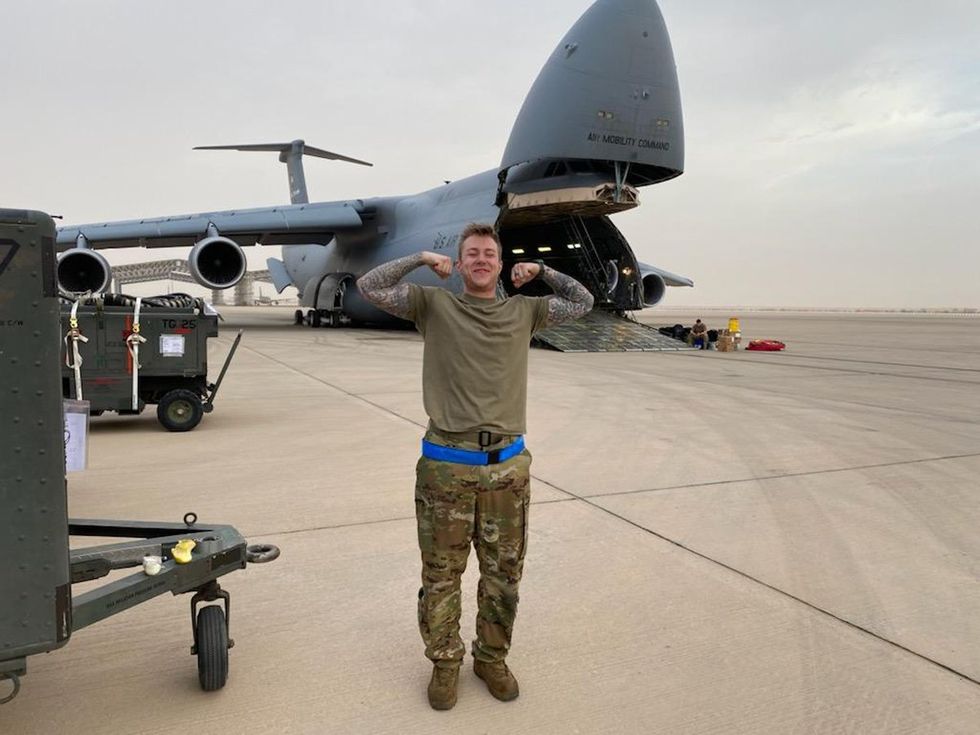
This article is part of The Advocate's May/June 2025 "Pride" issue. Support queer media and subscribe — or download the issue now through Apple News, Zinio, Nook, or PressReader.







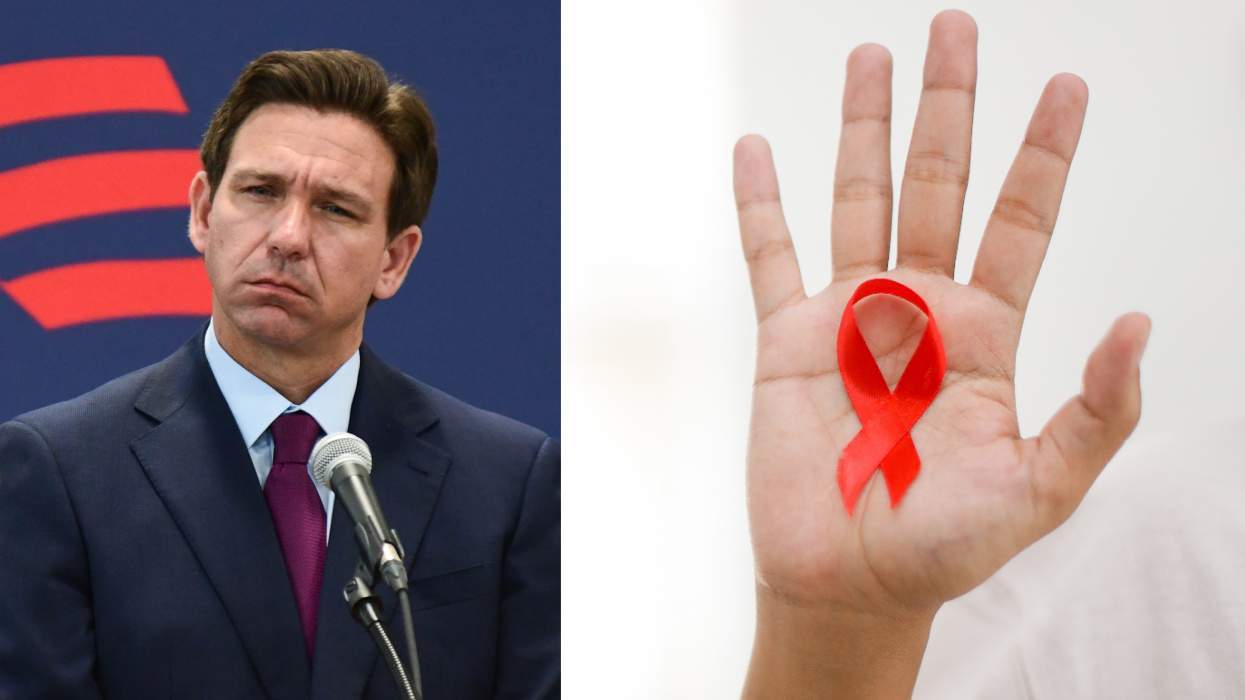
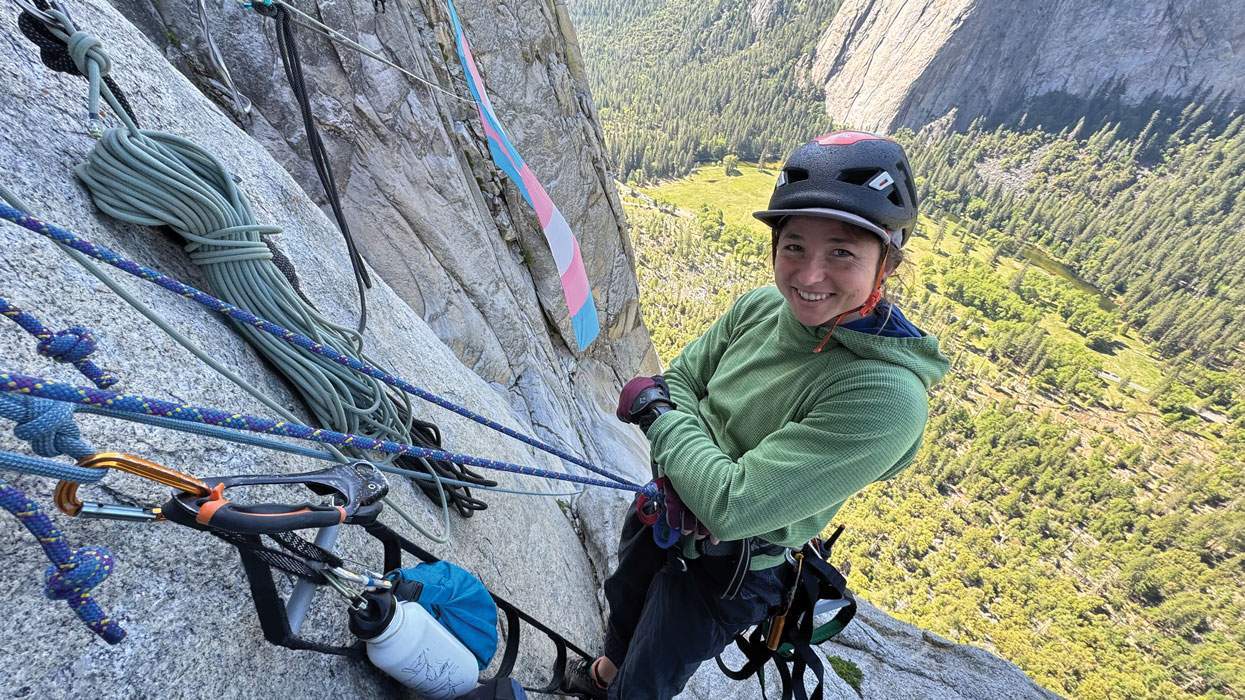
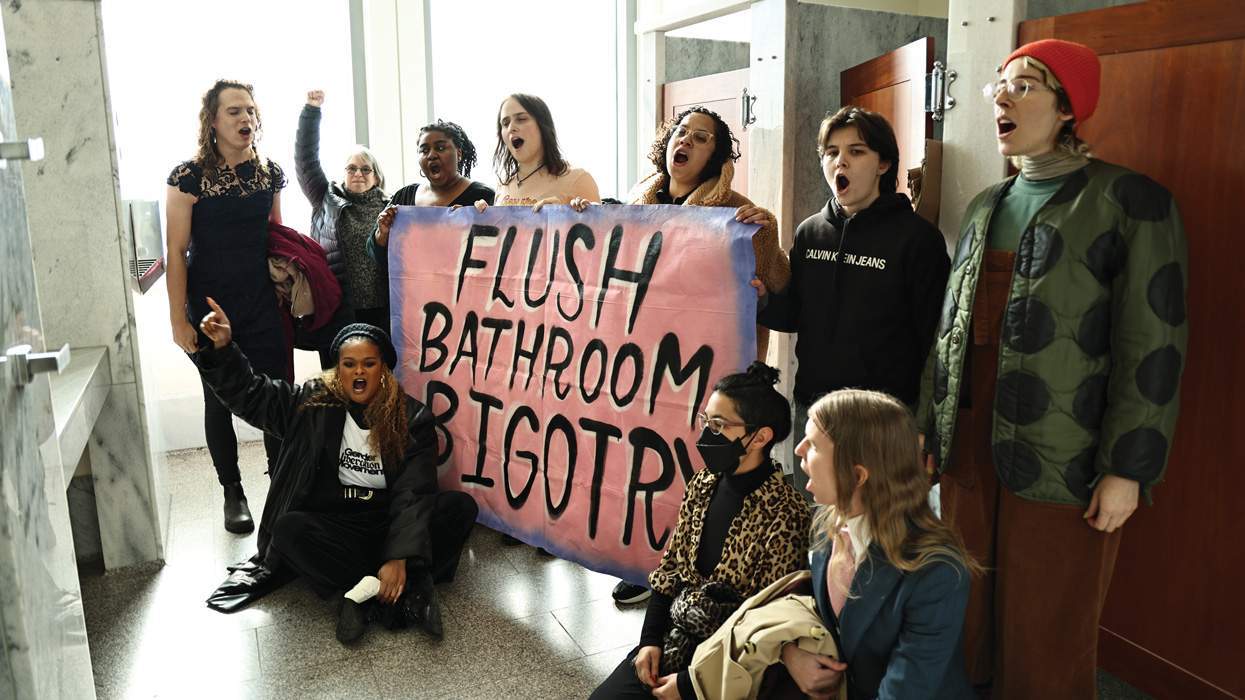





Charlie Kirk DID say stoning gay people was the 'perfect law' — and these other heinous quotes
These are some of his worst comments about LGBTQ+ people made by Charlie Kirk.